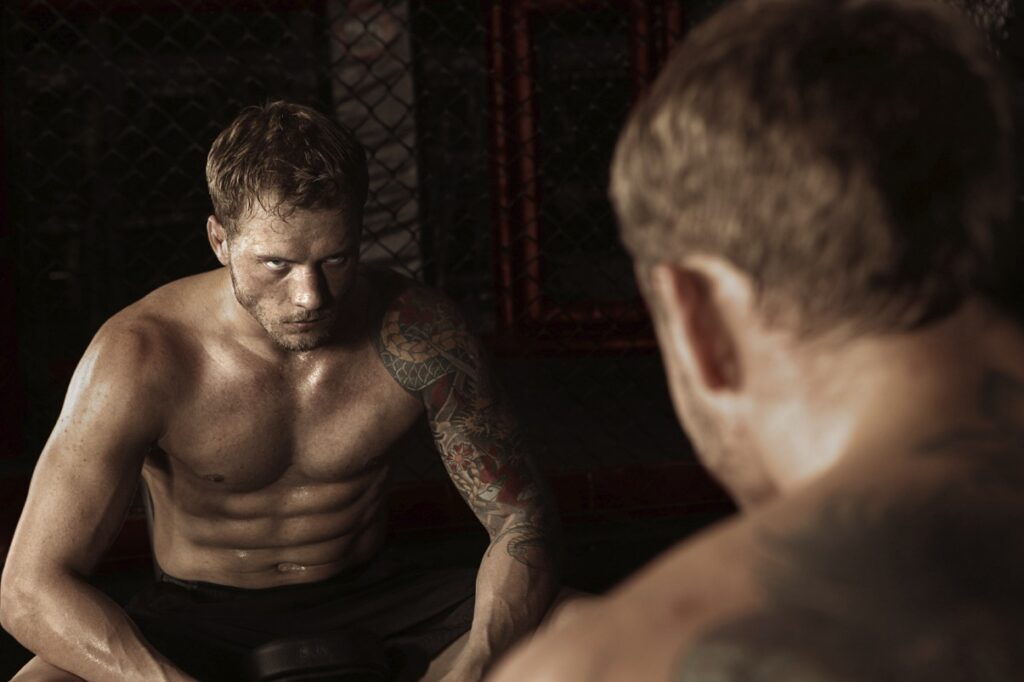Title: Mindful Leadership Coaching: Using Mindfulness to Develop Leaders and Transform Teams
Author: Peter Clough & Doug Strycharczyk
ISBN: 978-0749463779

This book was reviewed by David Evans of Burn Bridge Associates.
Subtitled “Improving performance, well-being and positive behaviour in others”, this is a useful book that will offer new insights for HR managers and line managers alike. Based on over 15 years’ of academic and practitioner research, the editors take readers on a journey of discovery about an aspect of psychometrics that is increasingly relevant in a turbulent and fast-moving world.
The book has three main parts: the first (chapters 1-9) is a description of the development of and basis for the Mental Toughness tool (MTQ48). The second part focuses on its application in a number of sectors and organisational environments. The book ends (chapters 19-27) with a review of mental toughness as it relates to coaching, fatigue, positive thinking, visualisation, relaxation, attentional control, goal-setting and research.
As you’ll probably have discerned, this is a large book with contributions from 12 academics and practitioners. The book’s heft reflects both the editors’ enthusiasm for the topic and their extensive experience as academics, researchers and practitioners. Ultimately, readers will seek out and focus on the parts that have most relevance for them, although the first 9 chapters are a must-read in order to get the concepts and model-framework firmly understood.
The concept of mental toughness is defined in this tome as ‘the quality which determines in large part how people deal effectively with challenge, stressors and pressure … irrespective of prevailing circumstances’. The authors set out the main themes of the first part of the book as being how they came to identify mental toughness as a distinctive concept, why it is useful and how it can be developed. Early on they also scotch some common myths about mental toughness: it is not something that we should all automatically somehow ‘need’ in our life; it is not a macho thing; being mentally tough does not mean we cannot be sensitive and caring.
Mental toughness plays a significant part in helping us to deal with potentially stressful situations. In the second chapter the authors discuss stress, its development as a psychological concept and the theories which relate in some way to it and personal performance (stress is defined here as ‘a consequence of any external action, situation or event that places special physical and / or psychological demands on a person,). The authors in fact offer us a model for stress (p19) incorporating the psychological, physiological, cognitive and behavioural impacts that it may bring.
In developing the mental toughness concept, the authors worked in both the sports and the organisational environment, identifying links to resilience (a dynamic process in which a number of elements, known as protective factors, are either available or unavailable for a particular person to utilise), hardiness (deploying control, challenge and commitment to protect against stressful life events and illness) and physiological toughness (the deployment of certain chemicals in the body in response to or in anticipation of events).
Chapters 4 and 5 describe the development of the MTQ48 – the mental toughness survey – using both qualitative and quantitative studies over several years. It was originally created to meet a particular need in the occupational world – why do some people handle the stresses and pressures of work better than others? Can we measure individual differences and can we do something about it? The resulting survey, the MTQ48, is easy to administrate, easy to complete and easy to interpret. Its output comes in five formats depending on need.
Following the extensive research conducted by the authors and others, they identified mental toughness as being a composite of four factors – control, commitment, challenge and confidence. They devote a chapter to each of these, explaining what they are, the attributes that a high and low score indicate and the relationship with other psychological concepts. The attribute-listing for each factor is useful because – for both high and low scores – they contain both ‘positive’ and ‘negative’ traits. This is important because it dispels the myth that a high score must be good in every circumstance: as with any psychometric report or personality assessment, the results are both open to interpretation and situational.
There is no doubt that mental toughness captures the zeitgeist – the world is seemingly getting more complex; individuals seem to be under ever-greater pressure to perform; mental toughness seems to have a positive correlation with mental and physical well-being. Furthermore, the authors make useful links between mental toughness and positive psychology, emotional intelligence and mindfulness – three very topical elements in psychology at the moment.
Are there any downsides to this book? – well, it’s long, with 280 pages. And there is some unnecessary repetition. However, I think that it is a book well worth adding to your list of things to catch up about.
On the basis of this, therefore, I commend this book to you. I think its subject-matter adds to our knowledge of the workplace and will be of value to HR professionals and line managers. It is well-written, easy to read and well-illustrated with case studies and examples of mental toughness in action. With its academic depth and broad practical application, it will serve both as a good read and as a reference document.
Reviewer’s rating: 5 out of 5






